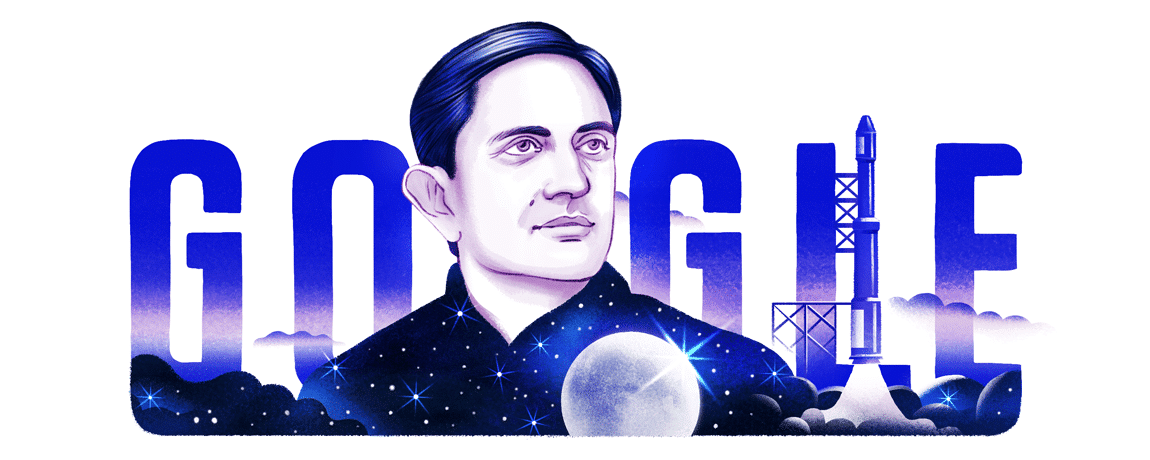Vikram Ambalal: Championing Innovation and Entrepreneurship in India

Image Courtesy: Google Doodle
Vikram Ambalal Sarabhai (12 August 1919 – 30 December 1971) was an accomplished Indian physicist and astronomer who made significant contributions to space research and the development of nuclear power in India. He was a recipient of the Padma Bhushan in 1966 and was posthumously honored with the Padma Vibhushan in 1972.
Life and Career
Vikram Sarabhai hailed from the renowned Sarabhai family in India, known for their involvement in major industrial ventures and their commitment to the Indian independence movement. He married the classical dancer Mrinalini in 1942, and together, they had two children. His daughter Mallika gained prominence as an actress and activist, while his son Kartikeya followed a path in science. Throughout his life, Vikram Sarabhai practiced Jainism. He initially attended Gujarat College, Ahmedabad, but later pursued higher studies at the University of Cambridge in England, where he completed his tripos in natural sciences in 1940. He returned to Cambridge in 1945 to pursue his Ph.D. and successfully defended his thesis, titled “Cosmic Ray Investigations in Tropical Latitudes,” in 1947.
Tragically, on 30 December 1971, Vikram Sarabhai passed away at the age of 52 due to cardiac arrest in Trivandrum (now Thiruvananthapuram). On that very day, he was scheduled to review the SLV (Satellite Launch Vehicle) design before his departure for Bombay. Just an hour before his demise, he had a telephone conversation with A. P. J. Abdul Kalam. His body was cremated in Ahmedabad.
Legacy and Awards
Vikram Sarabhai left an enduring legacy in the field of science and technology, and several institutions and landmarks were named in his honor to commemorate his significant contributions. The Vikram Sarabhai Space Centre (VSSC) in Thiruvananthapuram, the lead facility for launch vehicle development under the Indian Space Research Organization (ISRO), bears his name. Along with other Ahmedabad-based industrialists, he played a pivotal role in the establishment of the Indian Institute of Management, Ahmedabad. The Indian Postal Department released a commemorative Postal Stamp on the first anniversary of his death in 1972. Furthermore, in 1973, the International Astronomical Union designated a lunar crater, Bessel A, in the Sea of Serenity, as the Sarabhai crater in his honor. In addition, India’s Moon mission Chandrayaan-2’s lander, which aimed to land near the South Pole of the Moon on September 20, 2019, was named Vikram as a fitting tribute to him.
On 12 August 2019 a Google Doodle was created to celebrate Vikram Ambalal ‘s 100th Birthday.
Observer Voice is the one stop site for National, International news, Sports, Editor’s Choice, Art/culture contents, Quotes and much more. We also cover historical contents. Historical contents includes World History, Indian History, and what happened today. The website also covers Entertainment across the India and World.

